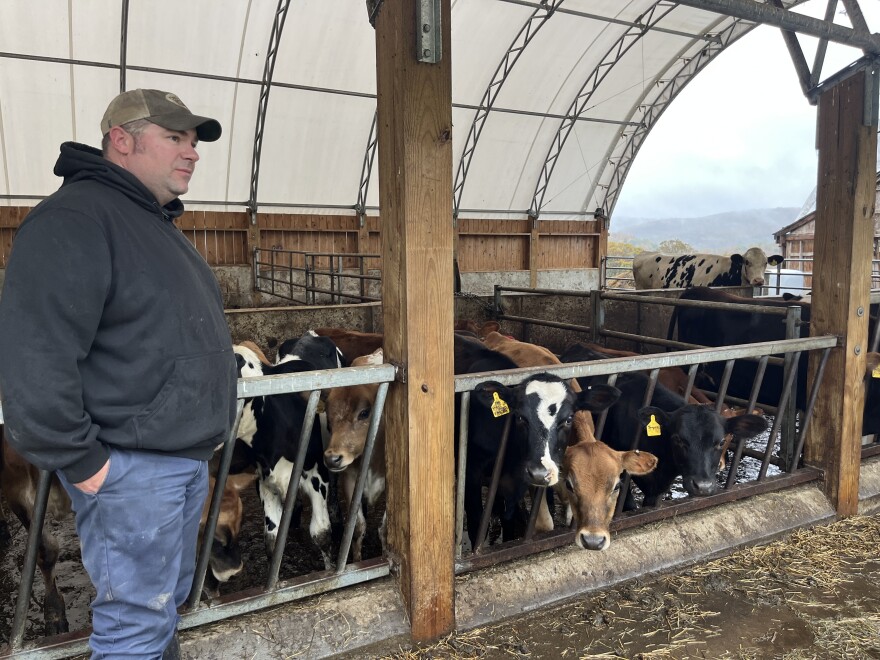Twice a day, every day, Tim Roberge makes the journey to the end of his long driveway in Chelsea to fetch water for his 60 milking cows.
He loads a massive water tank onto a trailer hitched to his tractor, and drives it to the edge of a steep embankment. Scurrying down to the spring, he uses a hose to send water up and into the tank. Then Roberge drives back to the milking barn to fill up his cows’ water buckets.
“That’s my life twice a day,” he said. “Hauling it up. Hooking it up.”
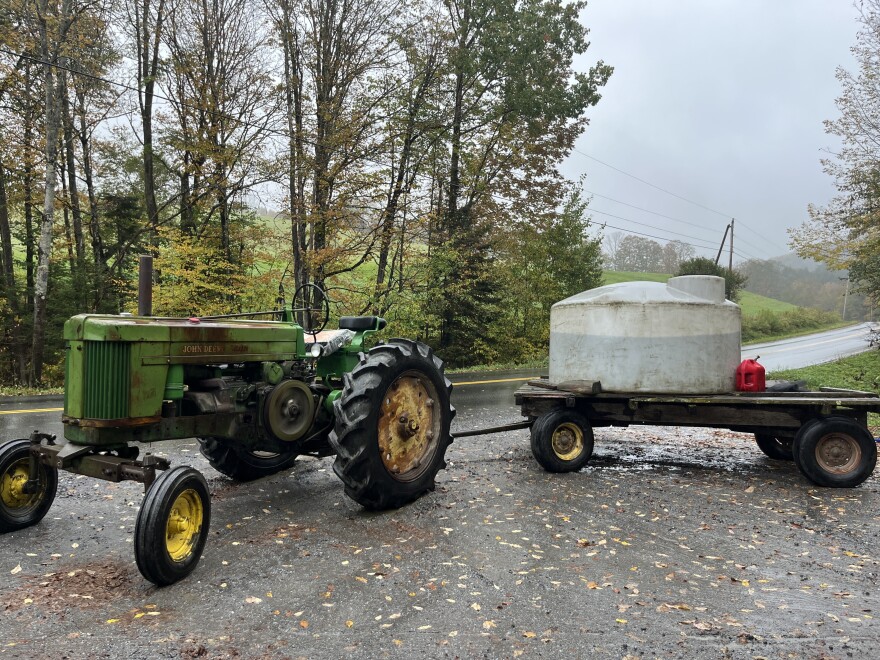
Roberge co-owns Oughta-Be Farm, an organic dairy. The farm's milking cows drink a lot of water — between 1,500 and 2,000 gallons a day.
Orange County — where Roberge lives — is in what the U.S. Drought Monitor calls “extreme drought.” It recorded the driest August in 130 years.
Windsor, Rutland and Addison counties are also in extreme drought, and there are parts of every other Vermont county in severe drought.
The federal government has already granted a disaster declaration for Orange and Windsor counties, and the state of Vermont recently requested a declaration for the entire state, which could bring some financial relief for farmers.
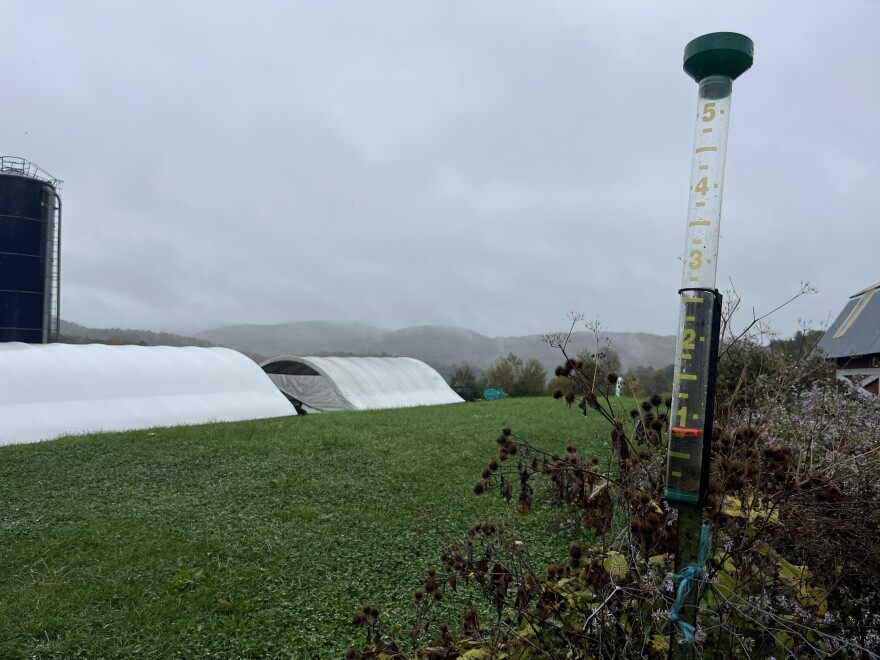
The drought has made it harder for some dairy farmers to cut enough hay to feed their cows, and for vegetable farmers to keep their plants from getting parched.
And for pretty much everyone, including Roberge, it’s meant more time and money spent on damage control.
“I will probably haul water till Thanksgiving, until it's just too cold to do it,” he said. “Unless we get some obscene amount of rain.”
If the spring at the end of his driveway runs dry, he’ll have to start buying and hauling in water from a commercial spring about 40 minutes away.
One county over, Norah Lake, in Norwich, is also watching the weather closely.
“Farming is always a pretty risky business,” she said. “It does feel like it's getting a little bit more risky weather-wise.”
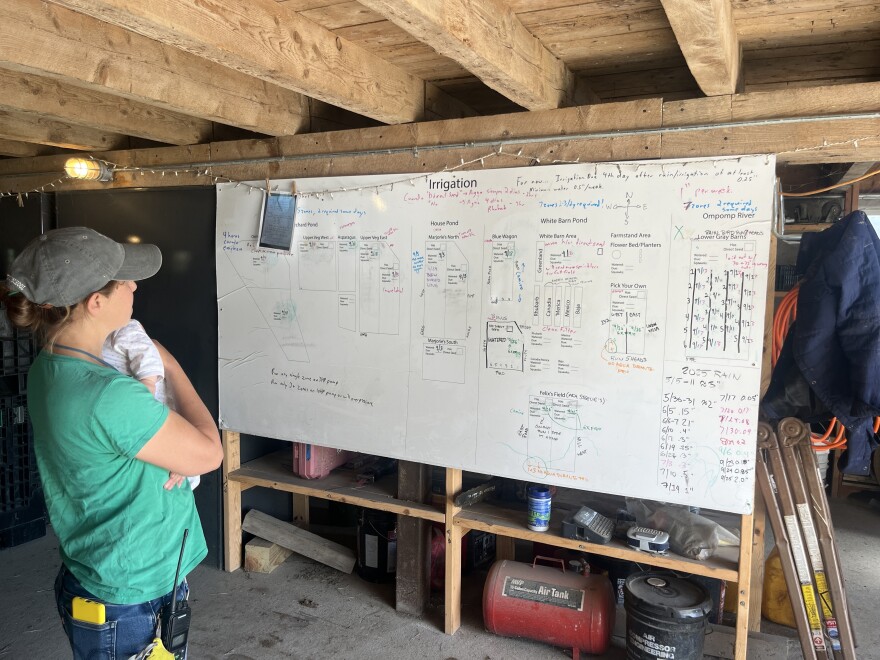
Lake runs Sweetland Farm. Its bread and butter is a 375-family CSA, or community supported agriculture program.
“We’ve been telling all our CSA members to do their rain dances,” she said, laughing.
During previous stretches of dry weather, Lake and her team have relied on four ponds they've built, all runoff-fed.
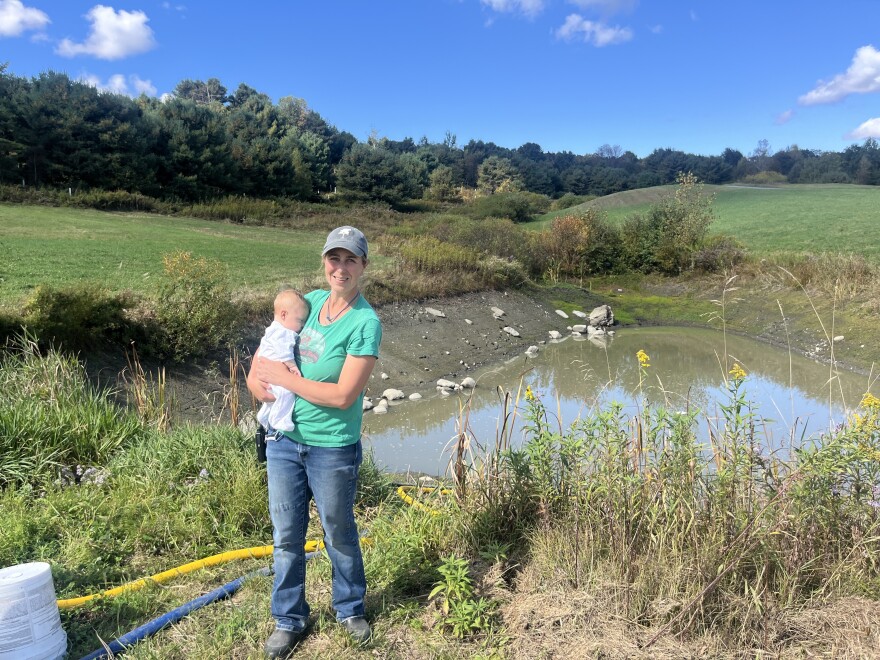
But earlier this fall, all four dried up, forcing the farmers to pull a lot of plants early. They’re also seeing significantly reduced hay yields and more apples falling off their trees.
Lake is now contemplating building another pond for next season. But that will cost thousands of dollars.
And there’s always the possibility that next year will be a really wet year — like last summer and the summer before it.
“So I think for us in our planning and our investments, we are trying to be resilient in multiple directions of the pendulum,” she said.
In the final days of September, it rained enough to fill the ponds with a shallow layer of water, and there’s more rain in the forecast in the coming days.
September’s rain would help the farm make it through the last few weeks of the growing season, Lake predicted.
In Chelsea, Roberge also celebrated the precipitation, calling it “a step in the right direction.”
Still, he said, “we’re not out of the woods yet.”

